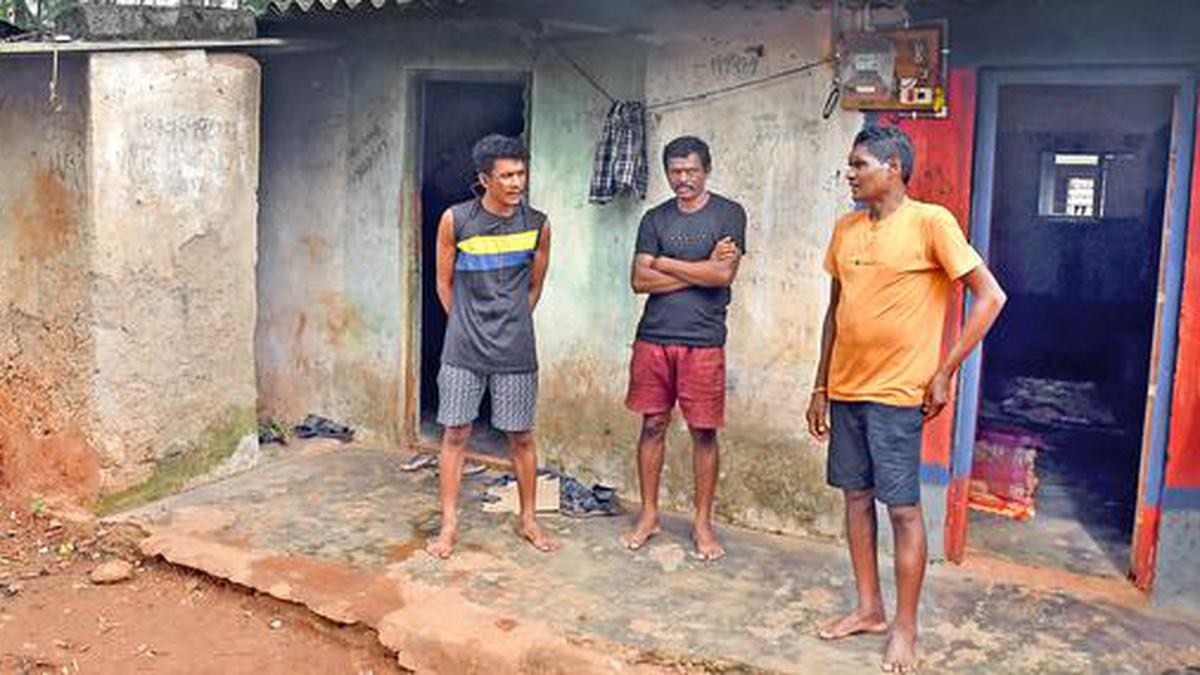
The difficult lives of migrant workers in Andhra Pradesh’s Anakapalli district Premium
The Hindu
Migrant workers in Visakhapatnam, Andhra Pradesh, risk their lives in pharma units for meagre salaries. Poor safety measures, shoddy facilities, and lack of training put them in danger. Govt must ensure safety audits, decent living & working conditions to protect them.
An hour before dawn breaks, Maharana, 40, rushes to a messy corner of his one-room rented accommodation. He takes out a blunt knife and starts chopping vegetables. Prodding his two roommates who are fast asleep, he yells, “Wake up. It is almost 5. The queue at the tube well will only get longer.”
It is Maharana’s turn to cook today. His two roommates, weary-eyed from the disturbed sleep the night before, because of the mosquitoes, enquire about lunch. “I am making rice and dalma (a dish of lentils and vegetables in Odisha). I cannot manage with upma every day. We need something more wholesome and filling to get through the day,” replies Maharana.
As anticipated, there is a long queue at the tube well outside their building in Jawaharlal Nehru Pharma City (JNPC) at Parawada in Anakapalli district bordering Visakhapatnam city of Andhra Pradesh. Some are seen bathing and others brushing their teeth, awaiting their turn to fill buckets.
“Not all rooms have water taps. They have toilets, though. The rooms with all such facilities come at a higher rent,” he says while packing lunch in two big steel boxes. Around 10 people share a tiny room and pay ₹3,500 as monthly rent. A bigger room, with water facilities is out of question, as it comes at ₹5,000 a month, which would mean shelling out ₹500 per head.
By 5.30 a.m., the by-lanes dotted with box like houses near the entrance of JNPC are caught in a whir of activity. Hundreds of migrant workers are seen rushing to duty that begins at 6.30 a.m. Maharana and his roommates are among the nearly 120 workers hailing from Odisha who live in a 20-room dilapidated housing complex at Parawada.
As the workers gather in the street, the labour sub-contractor arrives on his two-wheeler with an autorickshaw trailing behind him. Driven by his call, the workers hurry to board.
Rohit and Kailash Kumar (names changed on request), between 25 and 30 years, from Ganjam district of Odisha, quickly get into backseat. They mumble a quick prayer invoking the grace of Tara Tarini, the presiding deity of a famous Hindu shrine in their village, to protect them on duty.













